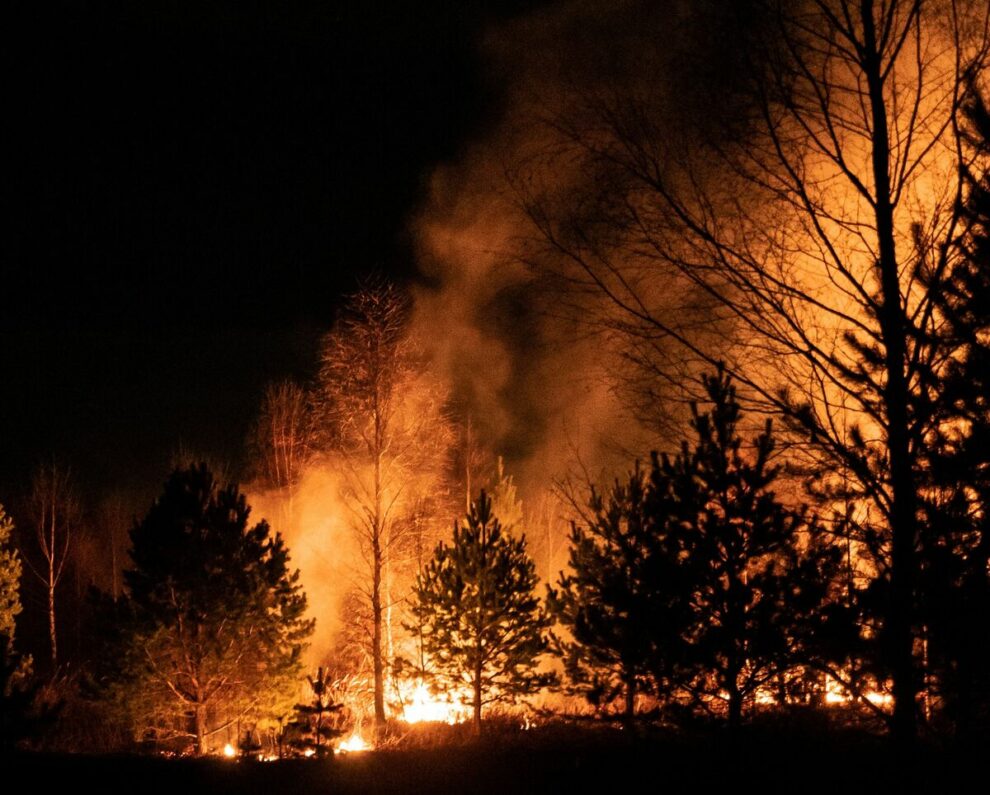Smoke from Canada‘s wildfires was wreaking havoc on air quality across Ontario and a dozen US states Wednesday, with monitors warning of very unhealthy or emergency conditions facing millions of people, particularly in Detroit and Chicago.
Alerts were issued from Ontario, northern Minnesota and Michigan across to New York and down to the southeastern states of North Carolina and Georgia, the latest dangerous air conditions in much of North America’s Great Lakes and Mid-Atlantic regions.
The air quality alerts come as much of the US South and Midwest wilts under a brutal heat wave that is affecting millions, with the National Weather Service issuing a heat index forecast as high as 115 degrees Fahrenheit (46 Celsius) Wednesday in northern and central Texas.
Chicago, whose metropolitan area is home to more than nine million people, posted a “very unhealthy” air quality index of 215 early Wednesday, the US Environmental Protection Agency said on its AirNow app.
US President Joe Biden‘s Air Force One touched down in Chicago Wednesday “through a thick layer of smoke and haze,” according to a White House pool report ahead of an economic speech there.
While the Detroit area, with 4.3 million people, recorded the nation’s worst air quality with an AQI touching 306 or “hazardous.”
An AQI of 301 or above reflects “emergency conditions” that are likely to affect everyone, according to the EPA.
“Air Quality in Chicago is still very unhealthy today. Please limit time outdoors,” Chicago’s emergency management office post on Twitter.
Across the Detroit River, the Canadian city of Windsor, Ontario showed an AQI of 238, according to IQAir, while Toronto — the country’s biggest city — was ranked the sixth-worst for air quality in a major city globally at an AQI of 124.
Detroit and Chicago were deemed to have the worst air quality in the world Tuesday, according to Swiss-based monitoring company IQAir, and they are forecast to remain in the top three worst Wednesday, just behind Dubai and above Minneapolis, Minnesota.
The wildfires have raged across parts of Canada for two months, creating smoke with tiny dangerous particles that are especially harmful for people sensitive to pollution.
“Wildfire smoke from Canada will reduce air quality over parts of the Upper/Middle Mississippi Valley, Great Lakes, Western Ohio Valley, Central Appalachians, and Mid-Atlantic, prompting Air Quality Warnings over the area,” the National Weather Service said in a statement.
In New York City, where noxious haze from the smoke three weeks ago disrupted flights and forced the cancellation of outdoor events, officials on Wednesday warned “air quality is expected to deteriorate this week due to Canadian wildfires.”
New York’s Metropolitan Transit Authority said it would offer free KN95 masks at its subway and train stops.
The state of Pennsylvania also declared a “Code Red” on air quality for Wednesday.
The wildfire smoke has drifted across the Atlantic Ocean and over European countries including Portugal and Spain.
But air quality there remained mostly fair Tuesday, “because most of the smoke that reached Europe was higher in the atmosphere, where it is less likely to affect human health,” according to US space agency NASA’s Earth Observatory.
The wildfire smoke appeared to be bearing down once more on the US capital Washington, a situation that NASA scientist Ryan Stauffer, who studies air pollution and the ozone, called “absolutely brutal.”
Scientists say human-induced climate change is helping drive the increased rates of wildfires, heat waves and intense weather systems.
